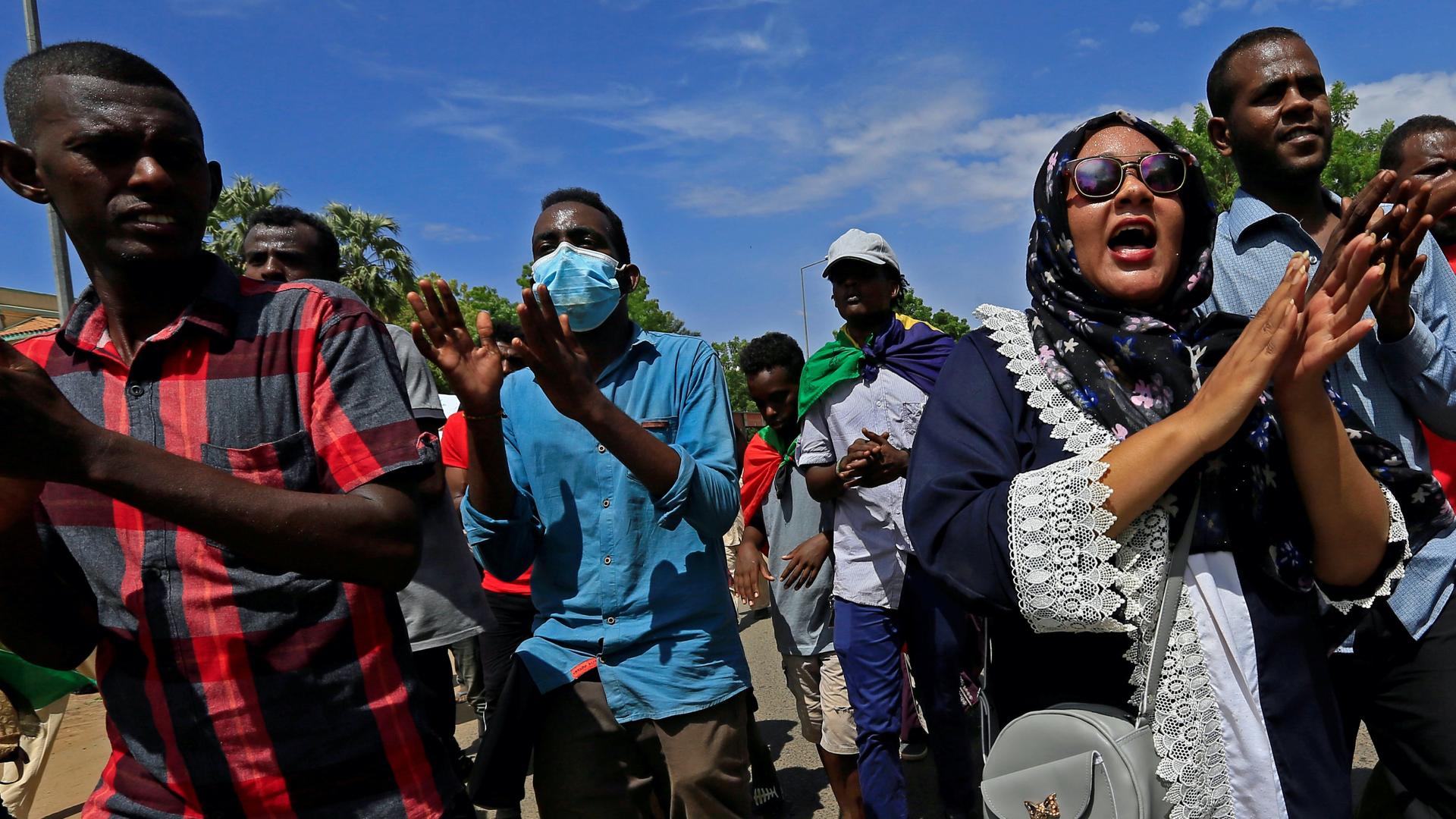Sudanese engineer Abdalla Khalil, 49, has been glued to the news for days, waiting to hear about the United States’ plans to remove Sudan from its state sponsors of terrorism list (SST).
He had CNN playing on TV, Facebook opened on his laptop, and Twitter on his phone.
“There’s been rumors, rumors and rumors every day. Everybody was so anxious. I slept at, like, 4 a.m. yesterday waiting for the tweet,” said Khalil, who currently lives in Addis Ababa, Ethiopia.
The highly anticipated tweet finally came on Monday, when US President Donald Trump announced plans to remove Sudan from the terrorism list, which the country has been on for more than two decades.
The announcement comes after months of behind-the-scenes negotiations between the US and Sudan.
“It’s great news,” said Khalil, who was born and raised in Sudan’s capital, Khartoum.
“We lost almost 30 years of our life waiting for the change, waiting to be treated as first-class citizens.”
“We lost almost 30 years of our life waiting for the change, waiting to be treated as first-class citizens,” he continued.
Thirty years under former President Omar Al Bashir’s rule gutted Sudan’s economy and sanctions tied to the SST listing had effectively cut off Sudan from the international financial system.
Related: After revolution, Sudan still faces squeeze of sanctions
“It was always a challenge to open a bank account. Everywhere,” said Khalil.
Discussions about removing Sudan from the SST listing resumed in the past year, following Sudan’s political revolution that ultimately deposed Bashir and implemented a civilian-military transitional government.
“Until now everyone in Sudan, including the opposition, the government, and the former regime, especially the military…they all want to remove Sudan from the SST list.”
“Until now everyone in Sudan, including the opposition, the government, and the former regime, especially the military…they all want to remove Sudan from the SST list,” said Jihad Mashamoun, a Sudan policy analyst based in the United Kingdom.
But the matter has been complicated by disagreements over how much Sudan should pay to victims of prior terror attacks.
Related: The State Dept. is nearing a deal over 1998 terrorism victims
Under the current deal, the country would pay $335 million to victims, a small fraction of the billions of dollars Sudan owes to American and foreign-born victims in US court judgments.
According to Reuters, the Sudanese government already transferred that money on Tuesday.
Lawyers representing foreign victims of the US Embassy bombing in Kenya and Tanzania have called the deal discriminatory. Still, others have argued that Sudan, with its struggling economy, can hardly afford to pay more.
“The economical situation is really bad,” said Khalil, who was in Sudan as recently as last week. “The Sudanese people are suffering from many things. No bread, no fuel, ques everywhere,” he continued.
Nationwide protests over the poor socioeconomic conditions in Sudan are planned for Wednesday.
Trump’s recent pressure on Sudan to normalize relations with Israel, seen as part of his broader Middle East peace strategy, also complicated Sudan’s delisting.
Related: Pompeo in Sudan pushes normalizing ties with Israel
“With regards to relations, Sudan and Israel do actually have a security relationship,” noted Mashamoun.
“A lot of the Sudanese refugees, especially from Darfur, they’re being repatriated back from Israel through various pressures and means, back to Sudan. And this network required the national intelligence, security services, and Mossad [Israeli intelligence] to work together with one another,” he continued.
Normalizing diplomatic relations remains a politically sensitive discussion in Sudan, one that not all members of the transitional government agree on.
Preemptive moves toward rapprochement with Israel by Sudan’s military leaders, also carryovers of the Bashir regime, has led to tensions with the civilian side of the transitional government.
This risks undermining the civilian government argues Mashamoun.
“Matters of foreign policy are within the [civilian] government’s control. But Burhan went and did it without the government,” he explained, referring to Abdel Fattah al-Burhan, chairman of Sudan’s Sovereign Council.
Normalizing relations with Israel also remains a contentious issue among the Sudanese public.
“I have no negative opinions about normalizing relations,” said Khalil, the engineer.
“But I don’t want to link lifting Sudan from the terrorism list with normalizing relations with Israel,” he concluded.
While Trump did not mention Israel in his announcement on Twitter, the New York Times has reported that normalization between Sudan and Israel could be imminent.
For now, excitement about the prospect of Sudan being taken of the terrorism list is running high.
In a video posted on social media, Sudan’s Prime Minister Abdalla Hamdok called it a major achievement for Sudan.
Still, the process of removing Sudan from the SST list will require congressional review and approval, which could take several months.
Our coverage reaches millions each week, but only a small fraction of listeners contribute to sustain our program. We still need 224 more people to donate $100 or $10/monthly to unlock our $67,000 match. Will you help us get there today?
